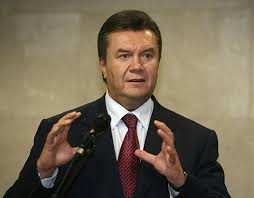Crisis in Ukraine: a complicated conflict

Capturing global concern, Ukrainian conflict has escalated rapidly since last week. With news stories concerning rioting citizens, Russian involvement, and now a manhunt for the president who intensely abused his power, the entire situation seems almost too tangled to comprehend. However, understanding this complicated debacle dates back to a decade ago.
In 2004, Ukrainian politician Viktor Yanukovych was elected president, despite allegations of fraud. This generated outrage from the Ukrainian people, who demanded a fair re-election. This was the birth of the “Orange Revolution,” as protests spanned Ukraine and the incident gained global recognition. The election was re-done, votes re-counted, and Yanukovych lost.
Despite his initial downfall, Yanukovych won the vote in 2010, when he was officially elected president of the Ukraine, six years after the “Orange Revolution.” Although he won the vote, he did not win the trust of the people. Shortly after being elected, he was seen as being increasingly corrupt, and suspicions only amplified in November of last year. It was during this time that he rejected a deal which would integrate the Ukraine further into the European Union, and instead accepted a $15 billion “bailout” from Russian president Vladimir Putin (someone whom Yanukovych is personally close to.)
This did not sit well in the West Ukraine, where Yanukovych has little support, and angry citizens began protest, feeling as if their president had sold out their country to Russia. These protests escalated, and by mid-January, Yanukovych took action once again, signing anti-protest laws that severely limited both freedom of speech and the media. Activists began calling these “dictatorship laws” and protests only propagated, this time spreading even to the more pro-Russian eastern Ukraine. Even though most of these “dictatorship laws” were repealed, protesting only continued as the people demanded change.
It was early last week, however, when the situation went from dire to horrific as protests suddenly turned bloody. Police opened fire on protestors, who, in turn, fought back. While the number of those killed is debated, most sources claim that about seventy civilians have been declared dead.
In response to this chaos, Yanukovych left the country Saturday, leaving the capital for somewhere in Eastern Ukraine. In his absence, protestors quickly took control of the city centre. Ukrainian parliament voted to remove Viktor Yanokovych from power and to hold a new presidential election in late May. Despite this vote, Yanokovych vowed from hiding that he would remain in power.
Yulia Tymoshenk, former Prime Minister of Ukraine, who was jailed after what most Western countries call a ‘politically driven’ trial in which she was unfairly convicted, was released after three years from prison in the wake of Yanukovych’s absence. She was labeled a political martyr, as she helped to spearhead the Orange Revolution in 2004, and many speculate that she will use this to her advantage in order to cast herself as the solution to Ukraine’s political crisis. After her release from jail, she promptly spoke to the people of Ukraine, telling them she plans to be the ‘guardian of the revolution.’ While her release has been hailed as a victory in opposition to former president Yanukovych, there is no guarantee that this will translate into political support, and as she was not an active participant against him during her time in prison, and because of her complex political legacy, many claim that she isn’t the best presidential candidate to solve Ukraine’s current issues.
While the Ukraine has sparked international interest, their struggles are far from over; however, the future looks much brighter now than it did just days ago.





